Meet the Team
|
Image
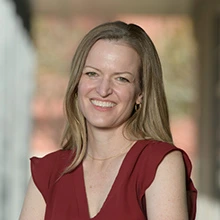
Kate Ellingson, PhDKatherine (Kate) Ellingson is the PI for the 2024 AZ-FEPS. Dr. Ellingson has a PhD in Epidemiology and Public Health from Yale and a BS in Psychobiology from UCLA. She has served as an Epidemic Intelligence Service Officer and Senior Epidemiologist at the CDC and Oregon Health Authority prior to joining the Epidemiology faculty at University of Arizona in 2017. Dr. Ellingson has an active research lab focused on occupational health, border health, and infectious disease. |
|
Image
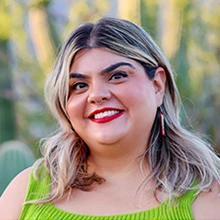
Priscila Ruedas, MPHPriscila Ruedas is the lead researcher for the AZ-FEPS. Ms. Ruedas has a Masters in Public Health Policy and Management from Mel and Enid Zuckerman College of Public Health. Ms. Ruedas has been engaged in farmworker health research in the southwest since 2020 in different capacities including being a co-investigator with the CDC for Population Connectivity Across Borders Farmworker Mobility in Yuma County, Arizona and as a staff member in the Yuma County COVID-19 Health Disparities grant. Ms. Ruedas has experience in community outreach and engagement, border health, and Latinx health disparities. Ms. Ruedas’ research interests include farmworker health, Latinx health disparities, health equity, advocacy, and community-based participatory research (CBPR). |
|
Image
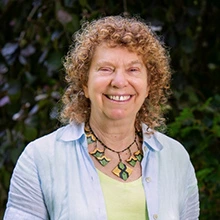
Alice Larson, PhDAlice C. Larson, Ph.D., is the technical advisor to the Arizona Farmworker Enumeration Profiles Study. Director of Larson Assistance Service (a research, development and advocacy firm) has been working with a variety of migrant and seasonal farmworker (MSFW) programs and services for over 40 years at national, regional, state, and local levels on topics which include demographics, needs assessments, evaluation, program development, access to services, health research, and worker training on pesticide health and safety. A major part of Dr. Larson’s career has been devoted to estimating MSFWs, a field in which she is a nationally recognized expert. In 1998, she began working with the Office of Migrant Health, providing worker and household member numbers at the county level. This experience led to the development of a unique enumeration approach focusing on collaboration and using a range of methodologies to produce figures that are reliable, broadly accepted and widely utilized. To date, a series of 20 reports have been produced encompassing 17 states. |
|
Image
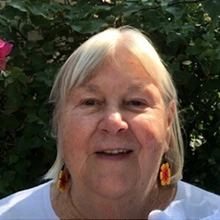
Jill de ZapienJill Guernsey de Zapien has been involved in community based public health interventions, policies and research in Arizona and throughout the Southwest and Mexico for more than forty years. Ms. de Zapien served as the Associate Dean for Community Programs at the University of Arizona College of Public Health from its initiation in 2003 until she retired in 2018. Currently, she is assisting the College of Public Health as the Director of Border, Transborder and Binational Public Health Collaborative Research with an appointment in the Health Promotion Sciences Department. Ms. de Zapien has been involved in efforts to improve the lives of farmworkers in the Arizona-Sonora region since 1984 and is a member of the evaluation team for the Enumeration Study. |
|
Image
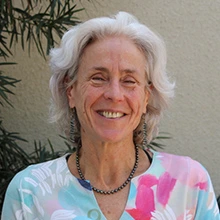
Maia IngramMaia Ingram, MPH is Co-Director of the Arizona Prevention Research Center and Program Director of Community-based Evaluation Projects. She has over 15 years' experience developing and evaluating community-based prevention and research programs using the community health worker (promotora) model. Ms. Ingram has expertise in community-based participatory research to engage communities in addressing health disparities in chronic disease, obesity, asthma and partner violence. Her research uses community-based participatory research in the pursuit of policy and environmental change in partnership with Arizona-Mexico border communities. Ms. Ingram partners with Federally Qualified Community Health Centers in border communities and collaborates on patient centered behavioral health care in the primary care setting. Ms. Ingram teaches two public health graduate courses - public health advocacy and participatory action research. Ms. Ingram is a member of the evaluation team for the AZFEPS. |
Cynthia Espinoza, MDCynthia Espinoza is an epidemiologist for the Yuma County Public Health Department and received a medical degree from Universidad Autonoma de Guadalajara in Mexico in 2003. Dr. Espinoza has been working in public health since 2017 involved in community based public health research and study protocol interventions on the U.S.-Mexico border to increase availability of health programming and engage Latinx community. Dra. Espinoza is the Community-Based Organization Researcher from the Yuma County Public Health Services District. |
|
Image
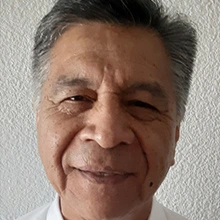
Luis VazquezLuis Vazquez is the Community-Based Organization Researcher from Campesinos Sin Fronteras. Mr. Vazquez received a Bachelors in Sociology from the Universidad Autonoma de Baja California. Mr. Vazquez has worked for Campesinos Sin Fronteras since 2007, currently as a Behavioral Health Technician. Mr. Vazquez has worked on multiple research investigations working alongside state Universities such as The University of Arizona and Northern Arizona University. |
|
Image
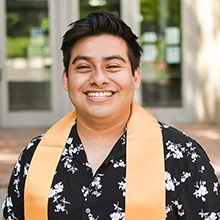
Alfonso TrujilloAlfonso is a graduate research assistant for the Arizona Prevention Research Center and a graduate student at MEZCOPH pursuing a Master’s of Public Health degree with a concentration in Epidemiology. He received his Bachelor of Science in General Sciences from the University of Oregon where he worked on addressing education disparities among low-come and at-risk youth. He is interested in addressing health disparities that are unique to migrant health along the US-Mexico border region and disease prevalence within migrant communities. He is a member of the evaluation team for the AZFEPS. |
Omozusi GuobadiaOmozusi Guobadia is the graduate research assistant for the AZFEPS and a graduate student at MEZCOPH pursuing a Master of Public Health degree with a concentration in Global Health. He received both a Bachelor of Science in Biology and Bachelor of Arts in Spanish from Morehouse College. Mr. Guobadia’s skillset includes data analysis, structural problem-solving, and a growing proficiency in statistical programming software packages. In his free time, Mr. Guobadia enjoys reading and playing the guitar. |
